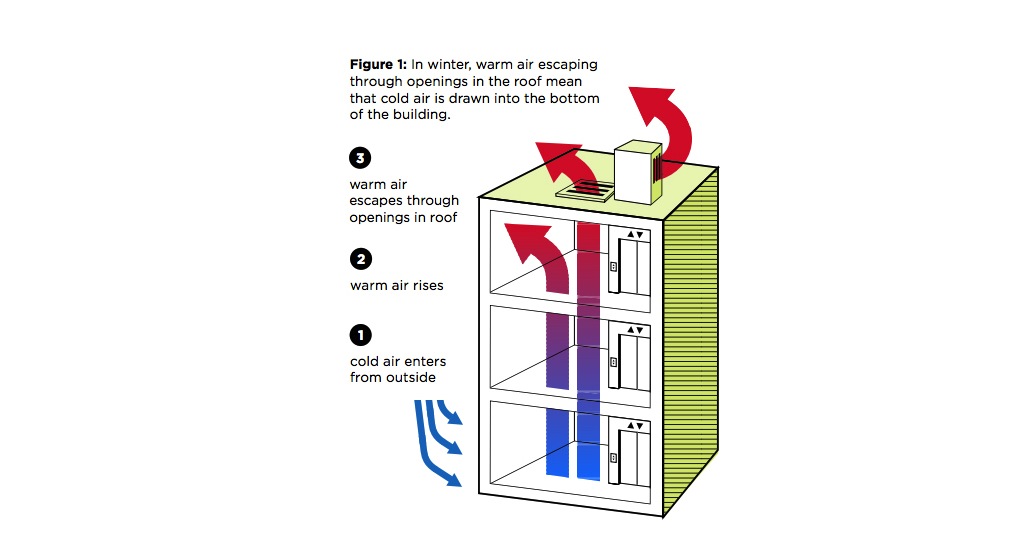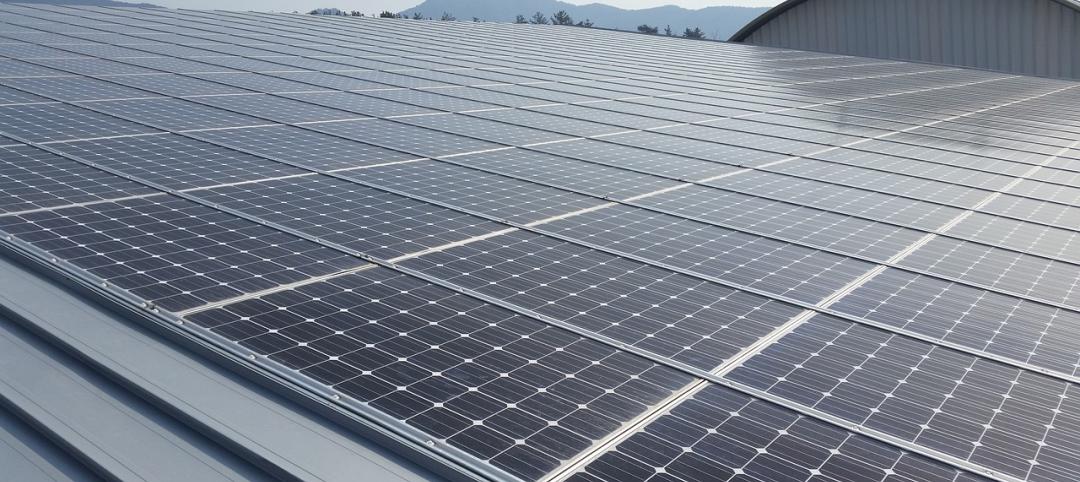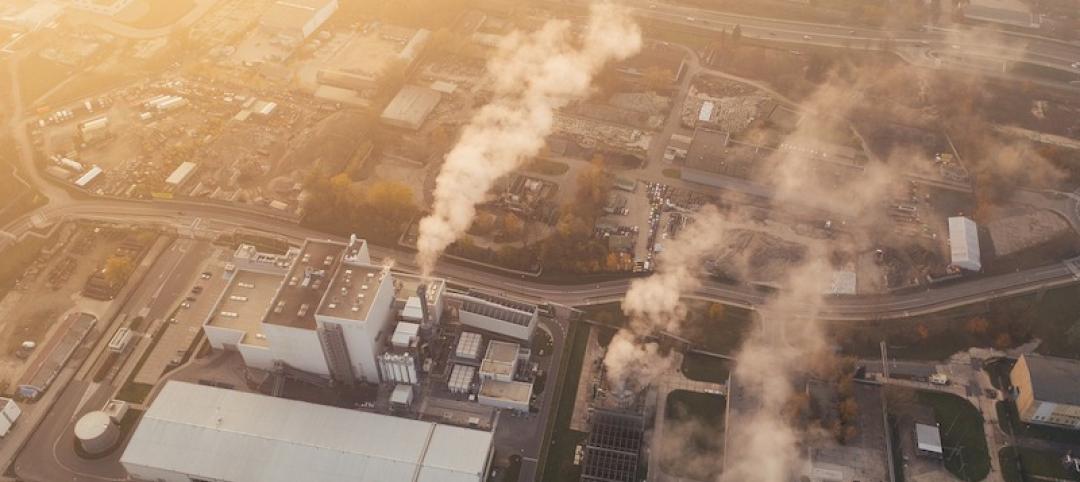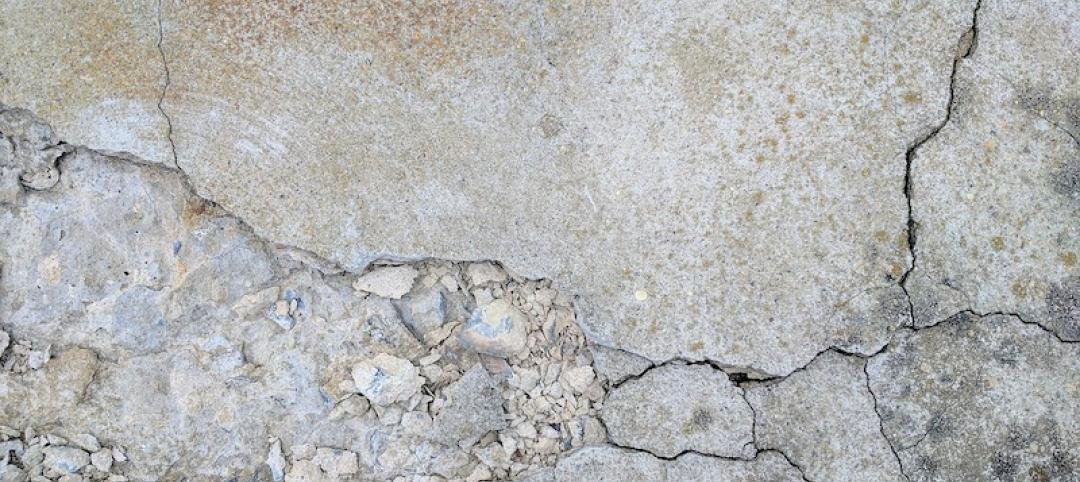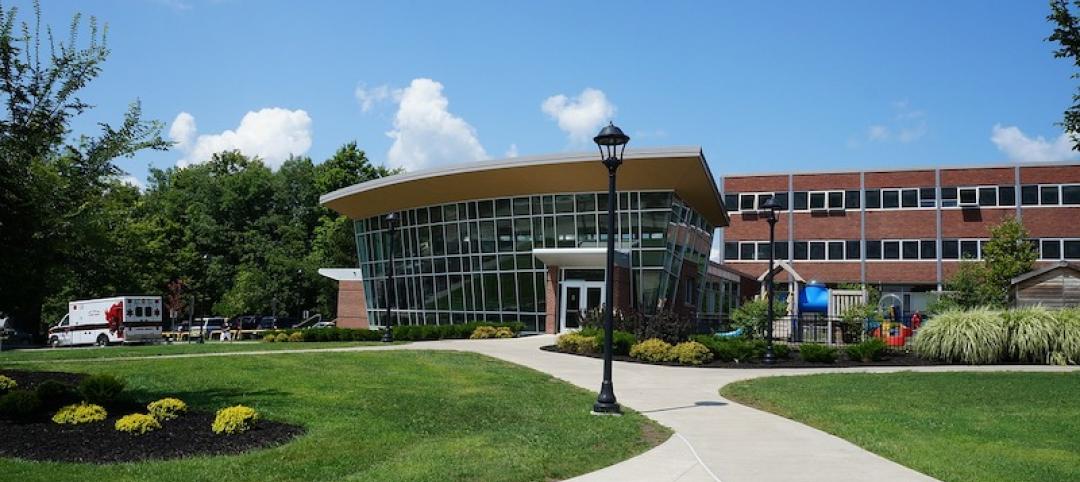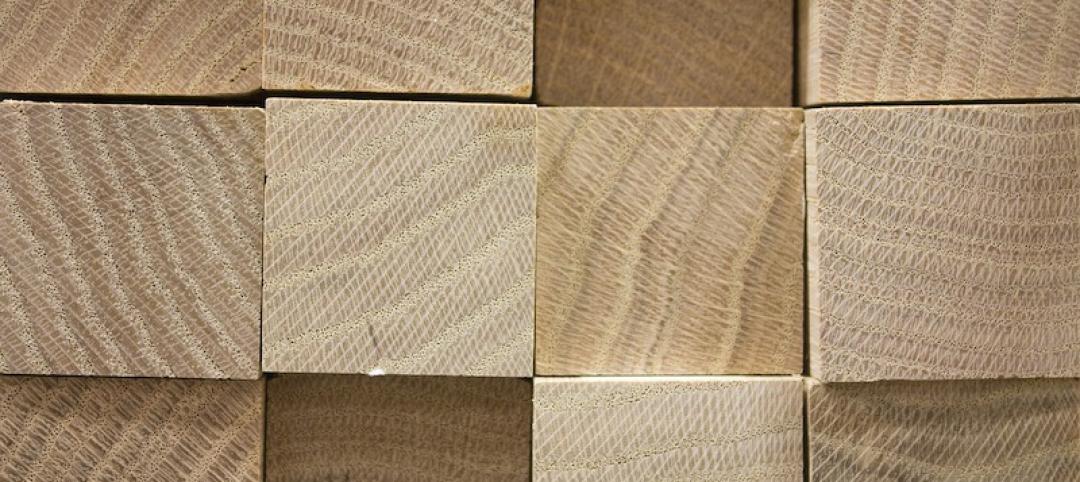New York City should focus on elevator shafts to improve the energy efficiency standards of its high-rise residences, according to a new report from the Urban Green Council.
A typical New York apartment building loses thousands of dollars worth of energy every year from leaky elevator shafts that vent warm air at the top of the building and draw in cold air at the bottom.
The report, “Spending Through the Roof says that apartment building owners pay an average of $3,400 a year to replace heat lost through the roof. In taller buildings, the cost can be more than $20,000 a year.
Plugging this type of air leak can cost from $500 to $15,000. If the leaks were plugged on 4,000 tall apartment buildings in the city, landlords would collectively save $11 million a year, while keeping 30,000 metric tons of greenhouse gases out of the atmosphere.
Elevator shafts and stairwell openings were required to vent smoke in the case of fire. But construction practices and firefighting techniques have changed, so the vents now "are needlessly open all the time."
Codes governing stairwell vents haven't changed since 1929 so there's no legal way now for building owners to fix the problem.
Related Stories
Codes and Standards | Sep 3, 2020
Turner Construction takes strong stand against racism
Shuts down work sites for anti-bias training.
Codes and Standards | Sep 2, 2020
California releases guide for state water policy
Water Resilience Portfolio is roadmap for meeting water needs as climate changes.
Codes and Standards | Aug 31, 2020
Fenestration alliance updates fenestration sealants guide
First update to 2009 document.
Codes and Standards | Aug 25, 2020
Platform will allow researchers to test energy system integration at scale
The U.S. Department of Energy’s (DOE’s) National Renewable Energy Laboratory (NREL) recently launched the Advanced Research on Integrated Energy Systems (ARIES) platform.
Codes and Standards | Aug 20, 2020
Wariness of elevators may stymie office reopening
Workers could balk at returning to high-rises.
Codes and Standards | Aug 19, 2020
Existing laws may be restricting efforts to cut carbon emissions
Outdated policies favor fossil fuels.
Codes and Standards | Aug 18, 2020
Florida becomes the third state to adopt concrete repair code
Sets minimum requirements for design, construction, repair of concrete structural elements in buildings.
Codes and Standards | Aug 17, 2020
ASCE seeks comments on seismic standard
Pertains to design criteria for nuclear facilities.
Codes and Standards | Aug 13, 2020
COVID-19 reboot guide offers strategies for reopening K-12 schools
Looks at space considerations for reopening at different scales.
Codes and Standards | Aug 12, 2020
Document provides guidance for mass timber construction
Overview of Intl. Building Code requirements included.


